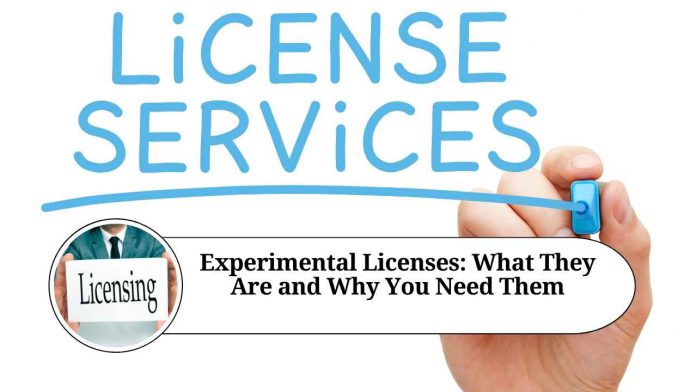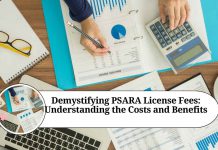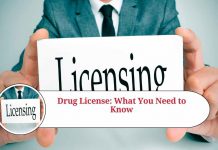Experimental Licenses: What Are They and Why Are They Important?
In the world of science and technology, experimental licenses play a vital role in the development and testing of new products and technologies. In this blog post, we will discuss what experimental licenses are, why they are important, and how they are obtained.
What are Experimental Licenses?
Experimental licenses are special permits granted by regulatory agencies that allow researchers and developers to conduct tests and experiments with new products and technologies. These licenses are typically granted for a limited period of time and are subject to certain restrictions and requirements.
Experimental licenses are necessary because many new technologies and products have the potential to cause harm to people, the environment, or other systems. By requiring developers and researchers to obtain an experimental license before conducting tests or experiments, regulatory agencies can ensure that proper safety measures are taken and that potential risks are minimized.
Why are Experimental Licenses Important?
Experimental licenses are important for several reasons. First, they help ensure the safety of people, the environment, and other systems. By requiring developers and researchers to obtain an experimental license before conducting tests or experiments, regulatory agencies can ensure that proper safety measures are taken and that potential risks are minimized.
Second, experimental licenses help foster innovation and technological development. Without experimental licenses, developers and researchers may be hesitant to test new products and technologies due to the potential risks involved. This could slow down the pace of technological advancement and innovation.
How are Experimental Licenses Obtained?
Obtaining an experimental license typically involves submitting an application to the relevant regulatory agency. The application will typically include information about the product or technology being tested, the proposed testing methods, and the safety measures that will be taken.
The regulatory agency will review the application and may request additional information or clarification. Once the application is approved, the developer or researcher will be granted an experimental license for a limited period of time.
Types of Experimental Licenses
There are different types of experimental licenses that are granted depending on the nature of the product or technology being tested, as well as the regulatory agency involved. Some common types of experimental licenses include:
- FDA Investigational New Drug (IND) or Investigational Device Exemption (IDE) – These are granted by the US Food and Drug Administration (FDA) for the testing of new drugs or medical devices.
- FCC Experimental License – These are granted by the US Federal Communications Commission (FCC) for testing new wireless technologies or devices.
- FAA Experimental Airworthiness Certificate – These are granted by the US Federal Aviation Administration (FAA) for testing new aircraft or aviation technologies.
- EPA Experimental Use Permit (EUP) – These are granted by the US Environmental Protection Agency (EPA) for testing new pesticides or other chemicals.
How to Obtain an Experimental License
To obtain an experimental license, researchers and developers typically need to submit an application to the relevant regulatory agency. The application will usually include:
- A detailed description of the product or technology being tested
- The proposed testing methods and protocols
- An assessment of potential risks and safety measures that will be taken
- The expected duration and location of the testing
- The credentials and experience of the researchers or developers involved
Once the application is submitted, the regulatory agency will review it and may request additional information or clarification. If the application is approved, the experimental license will be granted for a limited period of time and subject to certain restrictions and requirements.
Conclusion
Experimental licenses are an important part of the development and testing of new products and technologies. They help ensure the safety of people, the environment, and other systems, while also fostering innovation and technological development. If you are a researcher or developer working on a new product or technology, it is important to understand the requirements for obtaining an experimental license and to follow all safety protocols and regulations.
Read more useful content:
Frequently Asked Questions (FAQs)
What is an experimental license?
An experimental license is a special permit granted by regulatory agencies that allows researchers and developers to conduct tests and experiments with new products and technologies.
Why do I need an experimental license?
Experimental licenses are necessary to ensure the safety of people, the environment, and other systems. They also help foster innovation and technological development.
What types of products and technologies require an experimental license?
Different regulatory agencies may require experimental licenses for different types of products and technologies. Examples include new drugs or medical devices, wireless technologies or devices, aircraft or aviation technologies, and pesticides or other chemicals.
How do I apply for an experimental license?
To apply for an experimental license, you will need to submit an application to the relevant regulatory agency. The application will typically require information about the product or technology being tested, the proposed testing methods, and the safety measures that will be taken.
What are the requirements for obtaining an experimental license?
The requirements for obtaining an experimental license will vary depending on the regulatory agency and the type of product or technology being tested. However, in general, you will need to demonstrate that you have taken appropriate safety measures and that the benefits of the testing outweigh any potential risks.
How long does it take to obtain an experimental license?
The time it takes to obtain an experimental license will vary depending on the regulatory agency and the complexity of the testing. However, it can take several months or even years to obtain an experimental license in some cases.
Are there any restrictions on the use of an experimental license?
Yes, there are typically restrictions on the use of an experimental license, including limits on the duration of the testing, the location of the testing, and the number of people who can be involved.
What happens if I conduct tests without an experimental license?
Conducting tests without an experimental license can result in legal and financial penalties, as well as potential harm to people, the environment, and other systems.
Can I renew an experimental license?
In some cases, it may be possible to renew an experimental license. However, you will typically need to demonstrate that the testing has been conducted safely and that there is a continued need for the testing.
What happens after the experimental license expires?
After the experimental license expires, you will need to apply for a new license if you wish to continue testing. Alternatively, you may need to obtain a different type of license or permit if you plan to sell or market the product or technology.




















